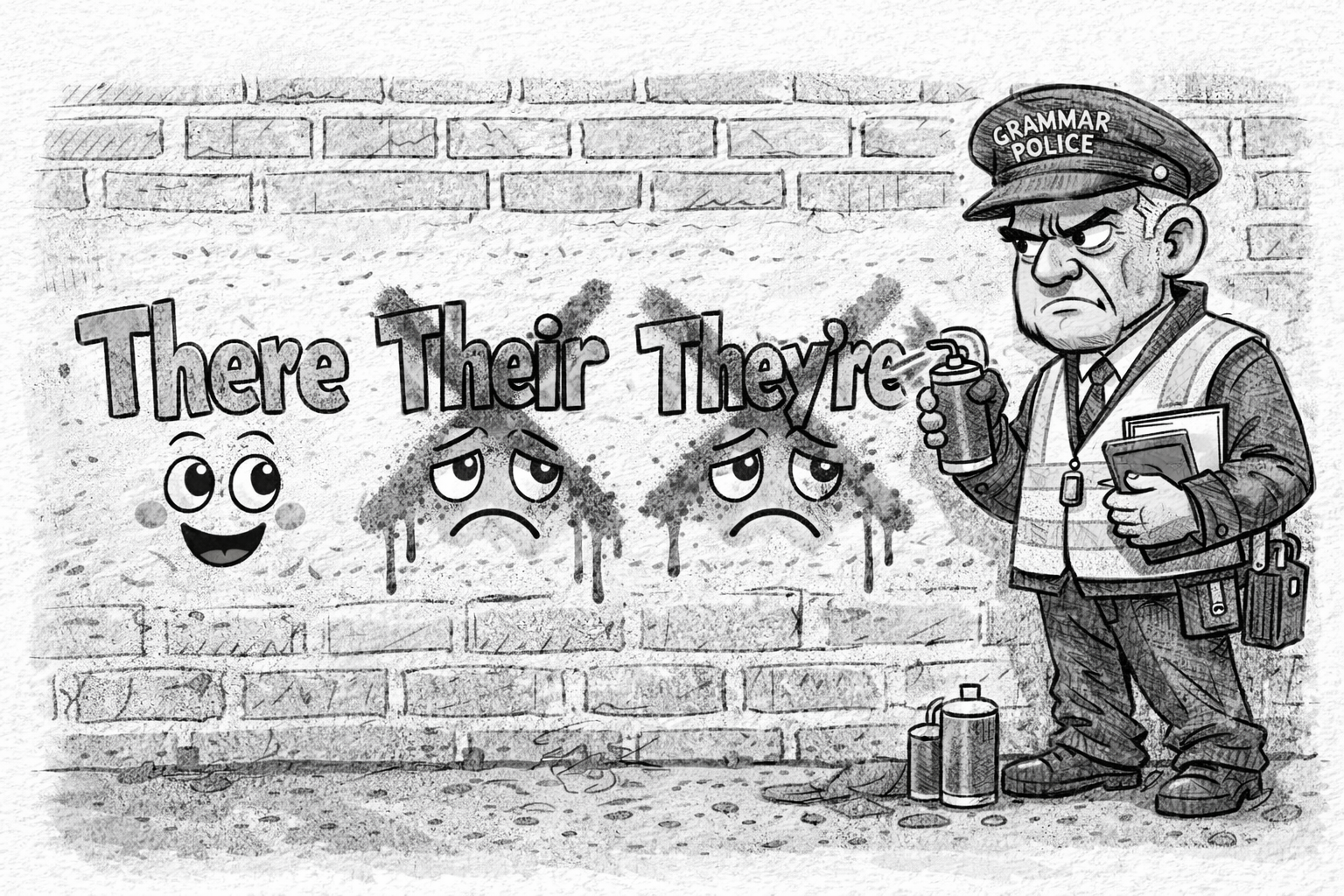The Unexamined Revolution: Why We Need a New Science of Life Online
Humanity is living through the most dramatic shift in daily existence since the industrial revolution, and we are treating it like a software update. The internet did not simply enhance communication. It rearranged the psychological scaffolding that supported human life for tens of thousands of years. The result is a global population living inside an environment that human minds did not evolve to navigate. Yet most people still talk about digital culture as if it is a set of apps and platforms rather than a new habitat.
This is exactly why researchers, sociologists, psychologists and anyone concerned with the future of human wellbeing should feel a sense of urgency. We need more people studying not only the dangers but the new possibilities created by this transformation. Because right now, whether we like it or not, billions of people are participating in the largest uncontrolled experiment ever run on human attention, emotion, identity and community. We know far too little about what it is doing to us.
This think piece is not meant to scold. It is meant to wake up the people capable of doing something about it. There are unprecedented opportunities here. But they will only be realized if researchers face the unvarnished reality of the present moment: our culture has outgrown the toolkit with which we attempt to understand it.
The goal is simple. We need a new science of life online. And we need it now.
The psychological fault line
Start with the mind itself. Human psychology evolved in a world where information was scarce, social groups were small and interactions were embodied. There was friction in relationships. There was accountability in behavior. Attention was a limited resource guarded by the natural pace of life.
The internet shattered those constraints. Suddenly attention is extracted by design. Social comparison is constant. Social feedback is instantaneous. Information is infinite. Conflict is disembodied. Loneliness is paradoxically amplified even while communication becomes nonstop.
Researchers have been studying the edges of these issues for years. Anxiety, depression, loneliness, compulsive digital behaviors and attention fragmentation have all been documented. But the research is scattered across specialties. Some is rooted in developmental psychology. Some in abnormal psychology. Some in media studies. Meanwhile the platforms evolve faster than long term studies can.
We are in a moment where the psychological effects of online living are both obvious and poorly understood. That is a dangerous combination. It leaves the public feeling the pain without having the language or evidence to articulate what is happening to them. It leaves policymakers decades behind reality. And it leaves researchers constantly trying to catch a train that is already miles down the track.
There is an opportunity here for bold thinkers. The internet is not just a tool. It is a psychological environment. That means we need psychological models built for it rather than adapted to it. We need new frameworks for attention. New frameworks for emotional regulation in hyperconnected settings. New frameworks for identity when identity can be split across multiple digital selves. And we need them quickly.
The relational revolution that no one is steering
Romantic and social relationships have quietly undergone a complete rewrite. Dating apps have globalized mate selection. That alone is enough to change social norms that had remained stable for centuries. Yet we are only beginning to study what it means for commitment when the dating pool is endless and curated with precision.
Researchers have documented the paradox of choice, the shift toward short term connections and the growth of low friction breakups. But these observations barely scratch the surface. We still know almost nothing about the long term consequences. What happens to attachment styles when early romantic experiences are mediated through algorithms? What happens to emotional resilience when rejection is trivial and constant? What happens to trust when communication is asynchronous and ambiguous?
There is a larger question that rarely enters mainstream conversation. What does intimacy look like in a world that trains people to swipe past inconvenient flaws in a partner rather than navigate them? Because long term relationships are built on working through friction, not bypassing it.
Yet this is not just a warning. There is potential here. The ability to meet people outside of limited social circles can help individuals escape restrictive cultures, find compatible partners and broaden their sense of belonging. But that potential is underdeveloped because the only serious research happening is focused on individual behaviors rather than the shifting structure of human connection.
We need sociologists who understand digital relationship ecosystems. We need psychologists who can model how online dating rewires expectations. We need anthropologists studying how digital mating markets shape family culture. And we need them collaborating, not publishing in isolated academic silos.
The new world of work and the silent cost of digital labor
Work is another arena where online life has rewritten the rules. Remote work, gig platforms and digital collaboration tools have changed not only how work is done but what work means.
Researchers have begun to explore burnout, the pitfalls of constant availability and the fragmentation of professional attention. But we lack deeper knowledge about the effects on creativity, mentorship, skill development and collective identity within workplaces.
A generation is growing up with little experience of in person collaboration. What does that do to leadership development? To conflict resolution? To apprenticeship learning? These questions matter far more than how many people use video conferencing.
Sociologically, the shift is even larger. Work used to serve as a source of social identity. It provided routine and community. Digital work risks reducing it to a transaction, which weakens the psychological role employment has historically played. If that role erodes, we need to understand what replaces it.
None of this is inherently bad. Digital work opens doors for flexibility, global collaboration and autonomy. But the costs and benefits are unevenly distributed. Without research that captures the full spectrum, we are left with a set of shallow narratives that have little predictive value.
The future of work will belong to those who study the deeper patterns. The internet has created new forms of labor, new forms of inequality, new forms of collaboration and new forms of burnout. Entire theories of organizational life must be rewritten.
The collapse of shared reality
For decades societies functioned on a shared baseline of information. Even when people disagreed, they still argued within the same frame of reference. The internet broke that frame. Now individuals can self curate their informational universe to the point where there is no longer a common baseline. This shift is not simply political or cultural. It is cognitive.
People now inhabit micro realities. Algorithms amplify existing beliefs. Social groups self sort into ideological enclaves. Outrage is rewarded. Nuance is buried. Misinformation spreads faster than corrections can catch up.
Researchers have made progress studying radicalization, group polarization and the dynamics of online conflict. But we lack a unified theory of how information ecosystems shape mental models of the world. Without such a theory, attempts to address misinformation or polarization are reactive at best.
More important, this area is ripe for breakthroughs. Understanding how digital information flows rewire cognition could unlock new methods for education, communication and conflict resolution. It could help societies rebuild shared understanding without sacrificing diversity of thought. But that will only happen if researchers are willing to treat the internet as an evolving cognitive environment rather than a pipeline for data.
The blind spots that could define the next century
Despite rapid progress, several critical areas remain severely under studied.
First is childhood development in a fully digital world. We do not know the optimal amount of screen exposure for developing brains. We do not know how online communication affects empathy or how algorithmic content affects long term attention capacity. A generation is growing up with more digital immersion than any before it, yet the research funding and urgency do not match the stakes.
Second is the long term structure of romantic and social stability. Dating apps, social networks and online communities are altering relationship expectations. That means families and communities will change as well. We do not yet understand how these shifts compound across decades.
Third is the cognitive burden of infinite information. Humans evolved to handle scarcity, not abundance. Our mental models tend to break when the world offers too many choices, too many demands and too many stimuli. Yet we have almost no research that measures the cumulative effects of digital overload on cognition over long spans of time.
Fourth is the health of social fabrics. Physical communities have historically been the backbone of trust and civic engagement. Digital communities offer new forms of belonging but lack the stabilizing features of physical proximity. We need to know what happens to cooperation, trust and social responsibility when the local fabric weakens.
These are not marginal issues. They are foundational questions for the next century of human life.
The opportunity for researchers
Here is where we shift from warning to invitation.
The world desperately needs researchers and thinkers who are willing to approach this moment with clarity and courage. The internet is not a passing trend. It is the new baseline of existence. That means the fields of psychology, sociology, anthropology and cognitive science must expand their frameworks. The old models are not wrong, but they are incomplete.
We need new theories of attention and identity. New theories of digital community and social fabric. New theories of intimacy when mediated by algorithms. New theories of cognitive load in environments defined by infinite stimulation.
There has never been more data to work with. There has never been a broader global laboratory. There has never been more opportunity to reshape how we understand the human species.
But this work requires an attitude shift. We cannot treat digital life as a quirky subfield. It must become a central priority. The stakes are too high for timid scholarship.
Simply Put
Researchers need to be bolder. Universities need to think faster. Policymakers need to listen more carefully. And society needs experts who are not afraid to say what is obvious but uncomfortable: we do not fully understand the psychological and social consequences of the online world, yet we are already living in it without guardrails.
This is not a pitch for moral panic. Panic leads to simplistic narratives that obscure the real issues. The internet has given humanity extraordinary capabilities. It has expanded access to knowledge, connection and opportunity. It can support creativity, empowerment and global collaboration at a scale that once seemed impossible.
But potential only becomes progress when it is understood. And right now we are in the dark about too many of the deep mechanisms that shape life online.
The next generation of scholars will define how humanity adapts to this new environment. They will either help build a society that uses digital tools to enhance human thriving or they will watch as unexamined dynamics erode the foundations of mental health, relationships and community.
The moment demands intensity. It demands that we take seriously the possibility that the most important scientific frontier is not outer space or artificial intelligence. It is the online habitat we already live in. We need researchers who are ready to map this territory with rigor, courage and ambition.
If you are capable of contributing to this work, the time to start is now.















